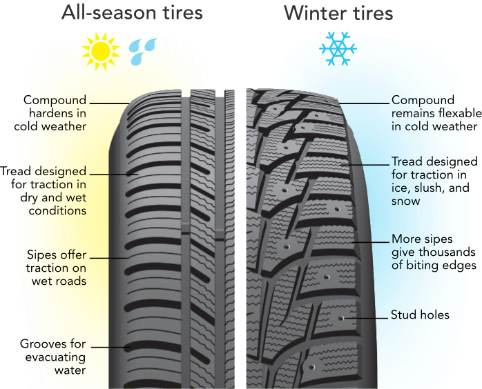Myth 1: My insurance prices are unaffected by the automobile I drive.
Fact: Yes, the type of vehicle you drive has an impact on your auto insurance costs. A rating system is used by the majority of Canadian insurance firms known as the Canadian Loss Experience Automobile Rating (CLEAR). The CLEAR system rates vehicles based on factors such as their safety record, theft risk, and maintenance or replacement costs. While there are numerous factors that go into calculating your auto insurance quote, one option to potentially cut your premiums is to drive a car with a higher CLEAR rating. It’s a good idea to check out a new car before purchasing it. The Insurance Bureau of Canada has a publicly accessible information sheet on popular Canadian car models and the facts that influence insurance costs and can help you get Best Car Insurance.
Myth 2: Insurance for red cars is more expensive.
Fact: Your insurance premium is unaffected by the color of your car. Your Personal Automobile Insurance cost is determined by a number of factors, including where you reside, your driving record, and the type and model of your vehicle, but it is not determined by the color of your vehicle.
Myth 3: My insurance premiums will increase if I receive a parking ticket.
Fact: Parking fines have no bearing on your auto insurance premiums. Other driving offences, such as speeding tickets, failing to stop at a stop sign, and at-fault incidents, nearly always have an impact on your insurance price, but parking citations do not. Unpaid parking tickets, on the other hand, may hinder your ability to renew your vehicle’s license plate.
Myth 4: My auto insurance would cover any personal things that were in the vehicle at the time of theft if it has been stolen.
Fact: In the case of an accident, your automobile insurance coverage is there to protect you, your passengers, and your vehicle. Car insurance does not cover any items that are stolen from your vehicle, including golf clubs, laptops, smartphones, and all of the above. The good news is that any items stolen from your automobile will most likely be covered by your home insurance or renter insurance policy. Assess the contents coverage of your current policy with your home insurance broker, and inquire about other potential coverage options and get best bundled home & auto Insurance.
Myth 5: If I move, my auto insurance rates will remain the same.
Fact: It’s quite improbable that your insurance rate would remain the same after relocating to a new neighborhood because where you reside is such an essential element in determining your rates. Your Personal Automobile Insurance rate will normally alter depending on the claim history of the location you are moving to, as well as the distance of your new commute to work.
Myth 6: Because new cars are more likely to be stolen, they are more expensive to insure.
Fact: The majority of the top ten most often stolen automobiles in Canada, according to the Insurance Bureau of Canada’s 2018 list, are over a decade old. When calculating your auto insurance rates, insurers consider a number of criteria. It’s possible that your new automobile costs more to insure than your older car because it’s more expensive to repair or replace, or because it’s statistically involved in more crashes.
Myth 7: If I give my car to a mate and they have an accident, their insurance premiums will be affected rather than mine.
Fact: If the individual you leased your automobile to is involved in an accident while driving it, your insurance coverage is normally used to cover any claims. In this instance, any claims you make would almost certainly remain on your insurance record. When you lend your automobile, you’re usually also lending your car insurance. Make sure the person you give your keys to is someone you can trust to drive safely.
Myth 8: Car insurance is always more expensive for men than it is for women.
Fact: This is not true for men over the age of 25. Your driving record, age, where you reside, how far you commute to work, and the particular model of your vehicle are all factors that affect your auto insurance. In general, men under the age of 25 are statistically more dangerous to insure than women of the same age. Consequently, they pay more for auto insurance on average (although not always!). When a male driver reaches the age of 25, more personal information about the driver and their driving history becomes available, his premiums will typically change. Most insurers will regard a clean driving record and a claim-free past to be more relevant than statistical categories at this point to offer best car insurance.
Myth 9: My premiums will increase if I shop around for insurance prices.
Fact: If you search around for free insurance quotes for coverage options, your auto insurance will not go up. It’s critical for drivers to shop about or consult an insurance broker to get best insurance advice to make sure they’re getting the greatest deal on the coverage that best meets their needs. Insurance brokers explore the market on your behalf to get the best coverage for you. In addition, an insurance broker represents you before lawmakers, provincial authorities, and insurance companies.
Myth 10: To cancel or switch insurance carriers, I must wait until my policy’s renewal date.
Fact: You have the option to cancel your policy prior to its renewal date. However, you may be charged a cancellation fee if you cancel your insurance in the middle of the term. Make sure you’ve done the numbers to see if switching your plan early will save you money while considering your personal automobile insurance options. While you aren’t tied in until your next renewal date, it’s sometimes better to wait until your policy is about to expire so you can cancel without paying a fee.







